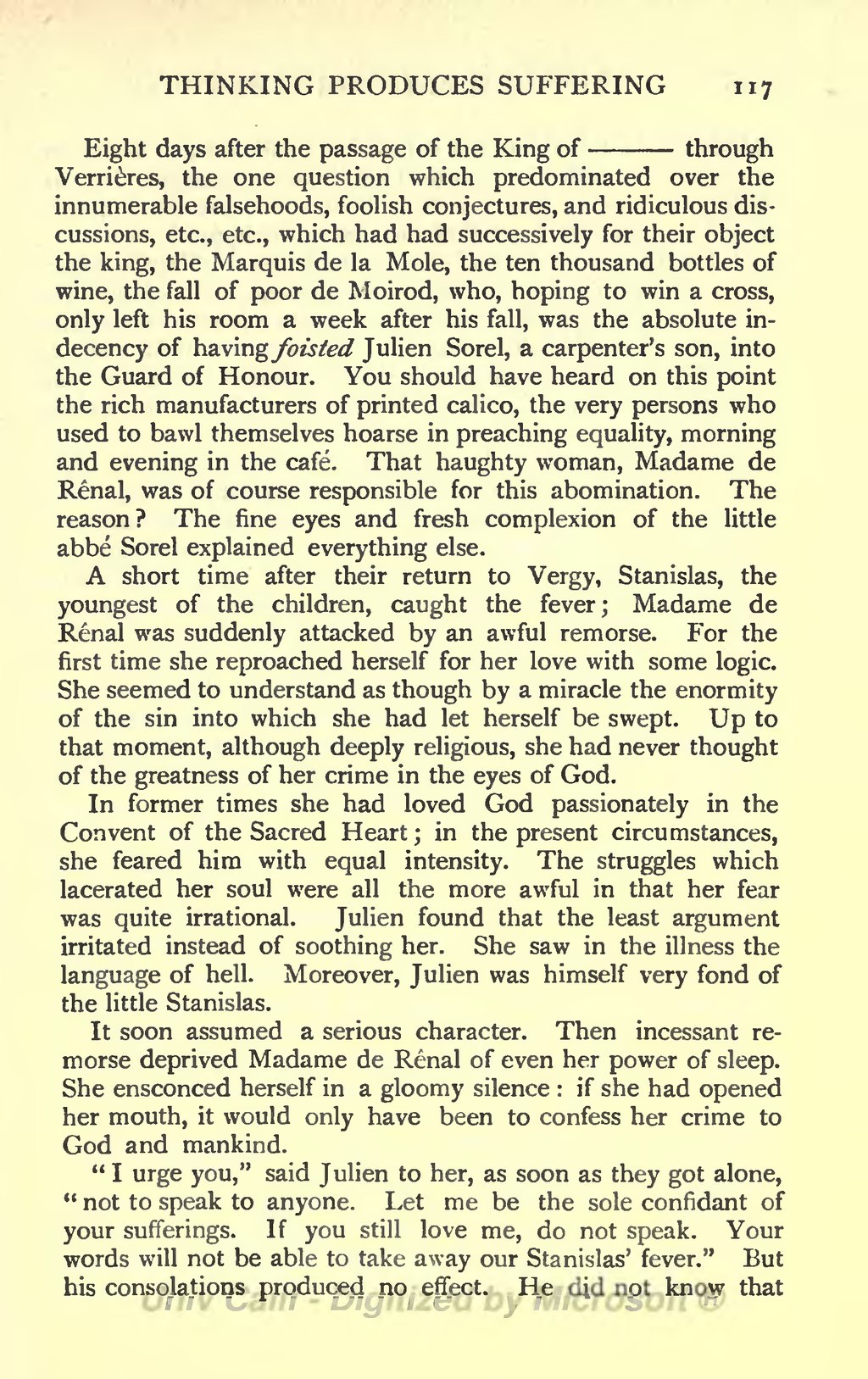Eight days after the passage of the King of through Verrières, the one question which predominated over the innumerable falsehoods, foolish conjectures, and ridiculous discussions, etc., etc., which had had successively for their object the king, the Marquis de la Mole, the ten thousand bottles of wine, the fall of poor de Moirod, who, hoping to win a cross, only left his room a week after his fall, was the absolute indecency of having foisted Julien Sorel, a carpenter's son, into the Guard of Honour. You should have heard on this point the rich manufacturers of printed calico, the very persons who used to bawl themselves hoarse in preaching equality, morning and evening in the café. That haughty woman, Madame de Rênal, was of course responsible for this abomination. The reason? The fine eyes and fresh complexion of the little abbé Sorel explained everything else.
A short time after their return to Vergy, Stanislas, the youngest of the children, caught the fever; Madame de Rênal was suddenly attacked by an awful remorse. For the first time she reproached herself for her love with some logic. She seemed to understand as though by a miracle the enormity of the sin into which she had let herself be swept. Up to that moment, although deeply religious, she had never thought of the greatness of her crime in the eyes of God.
In former times she had loved God passionately in the Convent of the Sacred Heart; in the present circumstances, she feared him with equal intensity. The struggles which lacerated her soul were all the more awful in that her fear was quite irrational. Julien found that the least argument irritated instead of soothing her. She saw in the illness the language of hell. Moreover, Julien was himself very fond of the little Stanislas.
It soon assumed a serious character. Then incessant remorse deprived Madame de Rênal of even her power of sleep. She ensconced herself in a gloomy silence: if she had opened her mouth, it would only have been to confess her crime to God and mankind.
"I urge you," said Julien to her, as soon as they got alone, "not to speak to anyone. Let me be the sole confidant of your sufferings. If you still love me, do not speak. Your words will not be able to take away our Stanislas' fever." But his consolations produced no effect. He did not know that
